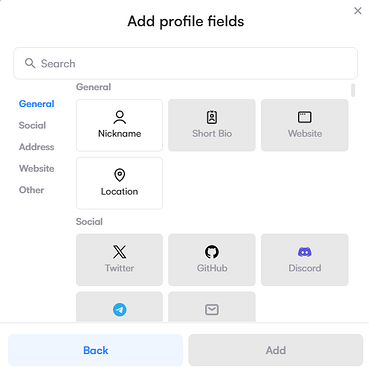Proposal Overview
This proposal introduces the Default Delegate as a global delegation feature integrated into ENS records. The goal is to allow any wallet to assign a Default Delegate that can be referenced by all token governance protocols utilizing delegation. This provides a fallback mechanism in case the primary delegate is inactive or unresponsive, ensuring continuous governance participation and protocol stability. The Default Delegate can be set as either an Ethereum address or another ENS identifier, enhancing flexibility for users.
Motivation
The proposal addresses several critical needs:
- Continuity in Governance Participation: In many decentralized systems, governance suffers from delegate inactivity. By enabling a Default Delegate, wallets can ensure their voting power is always represented, regardless of delegate inactivity.
- Protocol Interoperability: The feature would serve as a standardized solution across all protocols supporting delegation. Any protocol could reference the Default Delegate, enhancing the resilience of governance across DeFi, DAOs, and other decentralized platforms.
- Simplified Delegation Management: Allowing users to set a single fallback delegate for all protocols reduces the complexity of managing delegation settings in multiple ecosystems.
Key Features
- Default Delegate Field in ENS
- Each ENS profile will include a new field: default_delegate_address.
- The address can be either an Ethereum address or another ENS identifier, enabling flexibility in how users assign their default delegate.
- Cross-Protocol Compatibility
- This Default Delegate feature can be referenced by any governance protocol that allows delegation. Protocols will integrate this feature by querying a user’s ENS profile for the default delegate and activating it when necessary.
- Use Case Scenarios
- EOAs and Multisigs: Both externally owned accounts (EOAs) and multisigs benefit from this system by ensuring governance participation even if signers are inactive or unresponsive.
- Automated Delegation Strategies: Users can implement cascading delegation chains where voting power dynamically transitions through multiple backup delegates based on defined conditions, such as activity levels or specific proposal types.
- Liquid Staking: Stakers in liquid staking systems can delegate governance while staking their tokens. The Default Delegate could ensure governance power continues to be utilized even when the staker’s primary delegate is inactive, unlocking the potential for integrated staking-governance redundancy-based safety solutions.
- Activation Conditions
- The Default Delegate could be activated when:
- The primary delegate has not been set, defined by the protocol.
- The user manually triggers the transition.
- Protocol conditions (such as inactivity thresholds) trigger the transition automatically.
Technical Implementation
- ENS Record Modification
- A new default_delegate_address field will be added to ENS records. This will be an optional field where users can specify their Default Delegate.
- The default delegate can be another ENS name or a direct Ethereum address.
- Protocol Query and Fallback Logic
- Protocols query the ENS record to check for the default_delegate_address.
- DAOs will set conditions under which governance power will automatically transition to the Default Delegate.
- This ensures that voting power remains active, reducing governance inefficiencies.
- Security and Gas Considerations
- Gas Costs: Updating the Default Delegate field will involve minor gas costs for users, similar to updating other ENS records.
- Security: Users must carefully select trustworthy default delegates to avoid potential governance misuse. Additionally, protocols must enforce robust delegate validation to ensure governance integrity.
Governance Proposal Lifecycle
This proposal follows the standard ENS governance process:
- Phase 1: Temperature Check: A discussion will be opened in the ENS DAO forum to gather community feedback on the proposal. [THIS DOCUMENT]
- Phase 2: Draft Proposal: Once community feedback is incorporated, a detailed draft proposal will be posted on GitHub for further review.
- Phase 3: Active Proposal: After refining the proposal, it will be submitted for a formal vote through the ENS governance portal.
Conclusion: Does the Default Delegate Feature Make Sense?
The introduction of a Default Delegate mechanism within ENS sets the stage for advanced delegation strategies and creates a standardized solution for improving governance participation across decentralized protocols. This upgrade fosters resilience, automates delegation processes, and enables new functionalities like cascading delegation chains and liquid staking integration, positioning ENS as central infrastructure for future governance systems.
The Default Delegate field brings significant advantages in terms of automation, governance continuity, and cross-protocol interoperability. While there could be valid concerns about usability, security, and adoption, these can be addressed with thoughtful implementation, robust user education, and careful protocol integration.
In summary, the Default Delegate offers a promising solution to a real problem in decentralized governance. With the right safeguards and community support, it could lead to more efficient governance systems and better user experiences across the Web3 ecosystem. This proposal is now open for detailed discussion and feedback from the community. Your thoughts, questions, and constructive criticisms are welcome!
